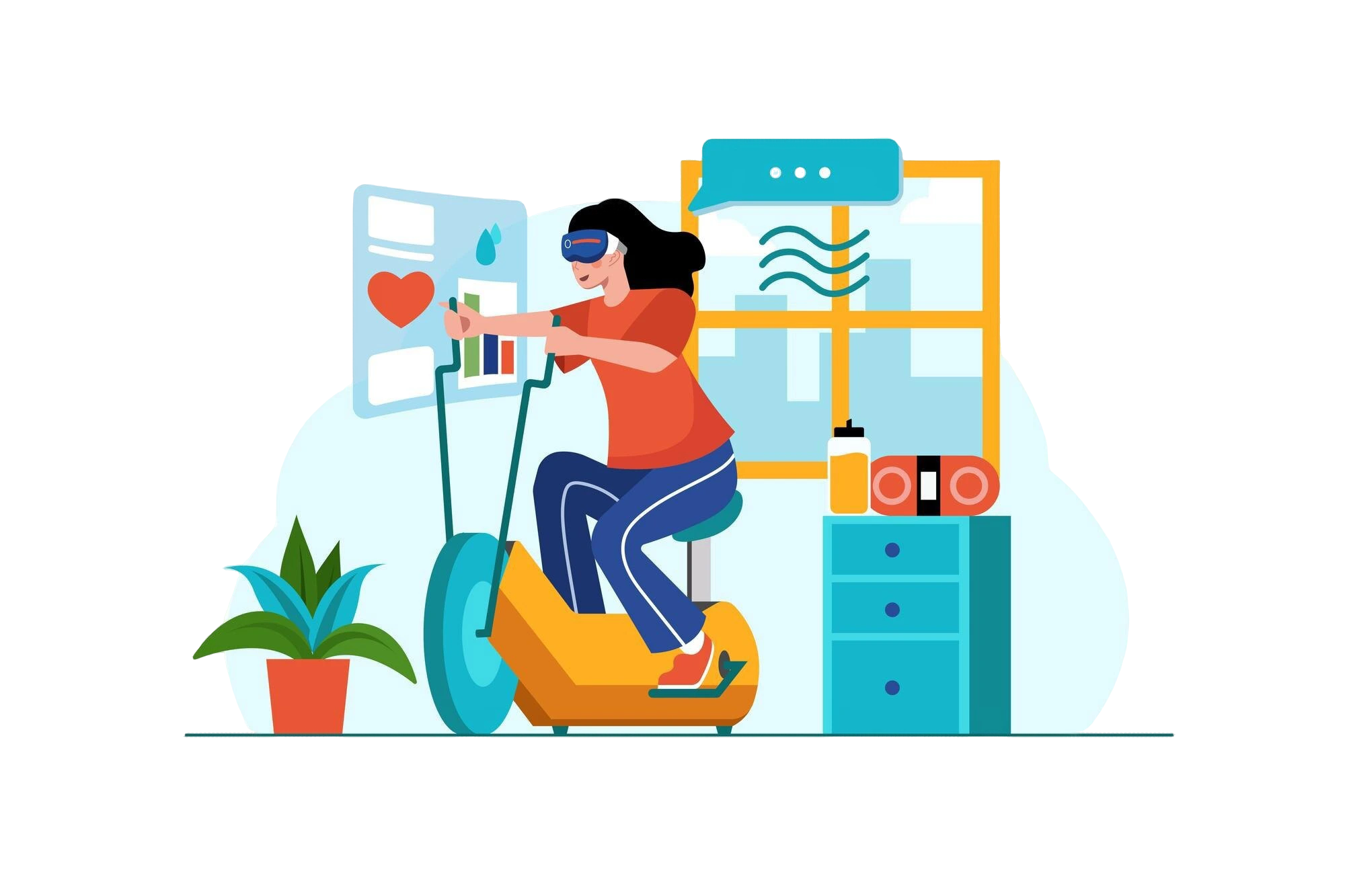Overview

Researchers are innovating new methods to make motor rehabilitation more engaging and effective. Virtual reality has emerged as an affordable and impactful solution by integrating rehabilitation techniques into immersive experiences. Travancore Analytics collaborated with a leading Australian firm to develop a program for their rehabilitation training program in virtual reality. This solution streamlined multiple training modules, enabling differently-abled individuals to master daily activities through real-time interactive visuals, text-to-speech functionality, and digital avatar assistance.
Rehabilitation training in virtual reality is paving the way for enhanced therapy outcomes and enriched user experiences.
Highlights of this training program includes.
- An immersive VR application with task based scenarios for training.
- Digital avatar to guide users with real-time, step-by-step instructions.
- Text-to-speech and audio-visual cues to enhance user engagement.
- Structured activities using a task-reward system to boost motivation and learning.
Case
Rehabilitation services play an important role in helping differently abled people, war veterans regain and improve their physical, mental or cognitive abilities after injury. Beyond physical recovery, these services should also be equipped to address mental and emotional well-being of an individual.This could also help differently abled individuals reintegrate to society and rebuild social and life skills.
Our client, who is well-known for providing virtual reality based service, faced difficulties in providing quality training programs for differently abled people and war veterans. Recognizing the need for a cutting edge training program, our client joined hands with Travancore Analytics to develop rehabilitation training in virtual reality-based simulation application to aid and assist people with disabilities in carrying out their regular routines.
Challenges
The primary challenge faced by the client was the lack of a proper training program that enables differently abled individuals to do daily activities without any outside help. Being an organization that focused on leveraging VR to treat chronic brain related health conditions the client faced difficulty in providing effective rehabilitation.Moreover, each patient might be having conditions that could limit them from doing daily activities in a unique way. Without a robust VR training program, therapists may not be able to customize the VR therapy to address these specific needs.
Children with disabilities frequently need specialized methods to support their cognitive and emotional growth. Not having a specific program can impede their development in comprehending emotions, solving problems, or thinking abstractly, leaving them at a disadvantage compared to their typical peers. Also, a lack of proper training program can put these children at the risk of physical harm when doing any daily activities.
Another challenge the client wanted to overcome was to provide training programs that can also improve individuals’ hand eye coordination as well. Hand-eye coordination is crucial for developing fine motor skills necessary for activities such as writing, typing, handling tools, and completing manual tasks. Individuals may face challenges in acquiring these skills if they do not receive adequate training, which can hinder their ability to carry out daily tasks effectively.
It is in this context that the idea of a VR based rehabilitation training program containing games and activities sparked their interest.
Solution
We developed a robust application of rehabilitation training in virtual reality containing scenarios and a few games for our client. The solution mainly consists of a virtual dashboard and a digital avatar. When the user selects a particular task, they are teleported to the chosen task environment and guided by the avatar with step-by-step instructions on performing the selected task.The app functions with a task-reward structure, where the user receives a reward for finishing a task by doing a different, more stimulating activity, like preparing a smoothie as a prize for effectively finishing the job of preparing tea. The ratings for each user’s achievements will also be provided in the program. Instructions for the current assignment will also be given. The app also includes small games for amusement and interaction for the individual. The application will provide guidance to the user using both audio and text throughout the entire process.
The entire solution was developed for Oculus Quest 2.
The VR based training platform offers :
- Scenario based activities with the intention of enabling differently abled people to do daily activities without any outside help.
- Games to improve motor skills of the user.
- Text and audio based assistance
- Digital avatar guidance
- Feature to provide scores according to user’s performance.
Impact
The VR based training program developed for the client has transformed rehabilitation services for differently abled individuals by providing immersive, interactive training for performing daily tasks. The solution is capable of empowering users to perform daily activities in their life through scenario based activities, games, guided assistance that could foster skill building with confidence. After going through this program the users are better equipped for reintegration into daily life and social environments with improved hand-eye coordination and motor skills. Travancore Analytics has developed this program for Oculus Quest 2, keeping in mind the training program should be able to provide a scalable and customizable tool for therapists and that could also measure user’s progress as well.
